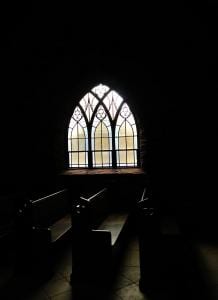One of my favorite pastimes, developed in the vortex of this wretched year, is to enter into recriminations about 2020 in every conversation with everyone, no matter who they are or how long I have happened to know them. Old friends, new acquaintances, my children, online, in person—at some point the words “I hate 2020” will come out of my mouth, and then I will start listing all the things. It’s one of those horrible habits that started as a coping mechanism, but now as the words tumble out of my mouth my shimmering soul essence floats up and sits in the air above me, and I watch myself doing the thing I promised myself I wouldn’t do no matter what.
So anyway, I hate 2020, and I’m going to tell you another reason why today, and it’s going to be pretty convoluted, and in the end, you’re going to want to go out and buy A Place To Belong by Megan Hill.
As a matter of disclosure, I was sent this book way back in late April/early May by the publisher in the hopes that I—a relentless blogger—would read it and write something about it, so that you, having read my blog, would know that it existed and would perhaps consider reading it and be helped. But maybe you remember what was going on in April and May of this, the year that I hate. That’s right, we were all in the early moments of global pandemic and lockdown. It was before the politics and rioting, before the fires in California, before…well, I promised myself I wouldn’t list everything. So anyway, I got the book, I opened it up, I was so excited, I read the first few paragraphs, and then I sat back and wept and continued to weep for the next many many weeks. Because this book is about how you—You, whoever you are—should go to church. And that was the very thing I desired to do.
I actually think it was felicitous that this book came out during covid. I think if you pick it up and read it, you should remember that for many months—and in some places still—going to church in person was/is not an option. Read it with an eye towards what it would be like if you did not get to have the things she described. And it will be easy for you to do because perhaps you don’t feel like you have some of them right now.
As a way of illustrating how much I love Megan’s book, and why going to church is so essential, I will tell you the chief reason why I hate 2020 and perhaps will hate it more by the very end. And that is because, because of covid, our congregation has thus far lost two essential people to the inexorable clutches of mortality and the grave. They didn’t die of covid, but they were old and in nursing homes, and for months and months and months, no one was allowed to visit them. The first one—Joyce—died while we were on holiday and I wasn’t blogging, which was good because I ceased being able to cope for a while and wouldn’t have been able to write anything.
It’s not that I was shocked when she died. She was exhausted with age, mainly, and wanted to go be with Jesus. No, I was angry. Angry that we hadn’t been able to visit her. Angry that she had been sequestered away. Angry at the year. Deeply grieved over the years that she hasn’t been in church pottering around the sacristy, sitting with her prayer book in the front pew for Morning Prayer, her fine thin writing filling up the church register, her biting sarcasm putting me in my place. She was a kindred soul, the first one to accept us and make it possible to stay here and do this work. If she hadn’t, we would have eventually slunk away in failure and disgrace. She represents something—so many things—but perhaps the first accepting grace that makes it possible for young foolish Christians to grow up into more reasonable ones, and the deep abiding truth that going to a building and doing the same thing every day, and the same thing every week, and saying the same words and eating the same bread and drinking out of the same cup is not tedious, but is a great honor. That she would die this year, of all years, heaps up my complaint against God into its ever-growing pile of ruin.
The second person—Mary—was 103 and died over the weekend. This time I am not so angry, though once again plunged into an entanglement of grief. Mary started coming to this church in her 20s and stayed on as the decades rolled by, doing good works, trying to find out who Jesus is and what he is going on about. She also was in Morning Prayer—Tuesday through Friday—week after week, ready to listen to the scriptures and discuss all the strange wonders they revealed. By the mercy of God, Matt was able to go and see her last week, and when he asked her about her faith in Jesus, she squeezed his hand in that long sought after peace that so many of us have prayed and prayed for.
Megan writes, in her chapter on the Body:
Not only does Christ fill the church, but the church is the fullness of Christ. Christ cannot be a head without a body; he cannot be a king without a kingdom; he cannot be a mediator without his people; he cannot be a redeemer without his church. The Father validated the work of Christ by raising him from the dead, seating him on the throne, and giving him a body (Eph. 1:20-23). The church is the irrefutable evidence of Christ’s complete and effective atonement for his people. The fact that we use our diverse gifts not for selfish gain but for one another’s good testifies to Christ’s reconciling work. The fact that every part inhabits a particular and valuable place affirms Christ’s rightful identity as our divine head. Throughout the world, and even in the presence of “rulers and authorities in the heavenly places,” the existence of the church boldly proclaims the truth of the gospel (Eph. 3:10). In our unity and our mutual dependence as we worship and work together, we display Christ himself.
Dear Christian, do you want to experience the fullness of Christ? Belong to the church. Use your gifts where he sets you. Exhort. Serve. Give. Show mercy. Work alongside his people for the common good. Then—in the unassuming surroundings of the fellowship hall or the church basement or the aisles between the pews—you will know firsthand the fullness of Christ. In fact, you cannot experience it in any other way. Come, take your place.
This is why, if you are a Christian and find yourself caught up in a new and strange emotional world, if you find your anxieties stretching out towards people you barely know, if you find yourself sitting in a pew, or watching online, or on a blanket in a park, or just not there on Sunday morning and as a result lonely and angry and sad, you can see and feel that you are being spiritually joined into a church body. And bodies, as we all know, hurt a great deal, because when they are struck by illness or amputation or whatever, it’s very very awful. But even that is a grace, a mercy, because of what I where I happened to land this morning in my gradual, slow, meandering trek through the Bible, this:
Now after the Sabbath, toward the dawn of the first day of the week, Mary Magdalene and the other Mary went to see the tomb. And behold, there was a great earthquake, for an angel of the Lord descended from heaven and came and rolled back the stone and sat on it. His appearance was like lightning, and his clothing white as snow. And for fear of him the guards trembled and became like dead men. But the angel said to the women, “Do not be afraid, for I know that you seek Jesus who was crucified. He is not here, for he has risen, as he said. Come, see the place where he lay. Then go quickly and tell his disciples that he has risen from the dead, and behold, he is going before you to Galilee; there you will see him. See, I have told you.” So they departed quickly from the tomb with fear and great joy, and ran to tell his disciples. And behold, Jesus met them and said, “Greetings!” And they came up and took hold of his feet and worshiped him. Then Jesus said to them, “Do not be afraid; go and tell my brothers to go to Galilee, and there they will see me.”
I love that term—“The Other Mary.” You can read a lot of harmonization accounts trying to figure out who this Mary is. It could very well be Mary the wife of Clopas, and therefore Jesus’ aunt. It is vastly charming to me to think that Jesus appeared to his own aunt on Resurrection morning, before all the disciples or anything like that. In my mind, my own Mary and Joyce were like “the other Mary,”—there all the time, no matter what, ubiquitous in every congregation, and yet peculiar and necessary. I suppose someday I myself will be “the other Mary,” puttering around the sacristy, irritating everyone by putting things in drawers so that you can never find them again, poking my finger at the “youth” to tell them how to be. The church is full of Marys—of people hanging on for dear life, there for every moment, both great and small, hopeful and yet often doubting. If you think you can do without them, you can’t. They are members of you, as you stretch out your hands to grab hold of the feet of Christ. You will go on feeling a great hopeful ache as you walk toward your own mortal grave, yet being saved into the glory of eternal life.
For heaven’s sake, buy and read A Place to Belong, and go, join a church.












